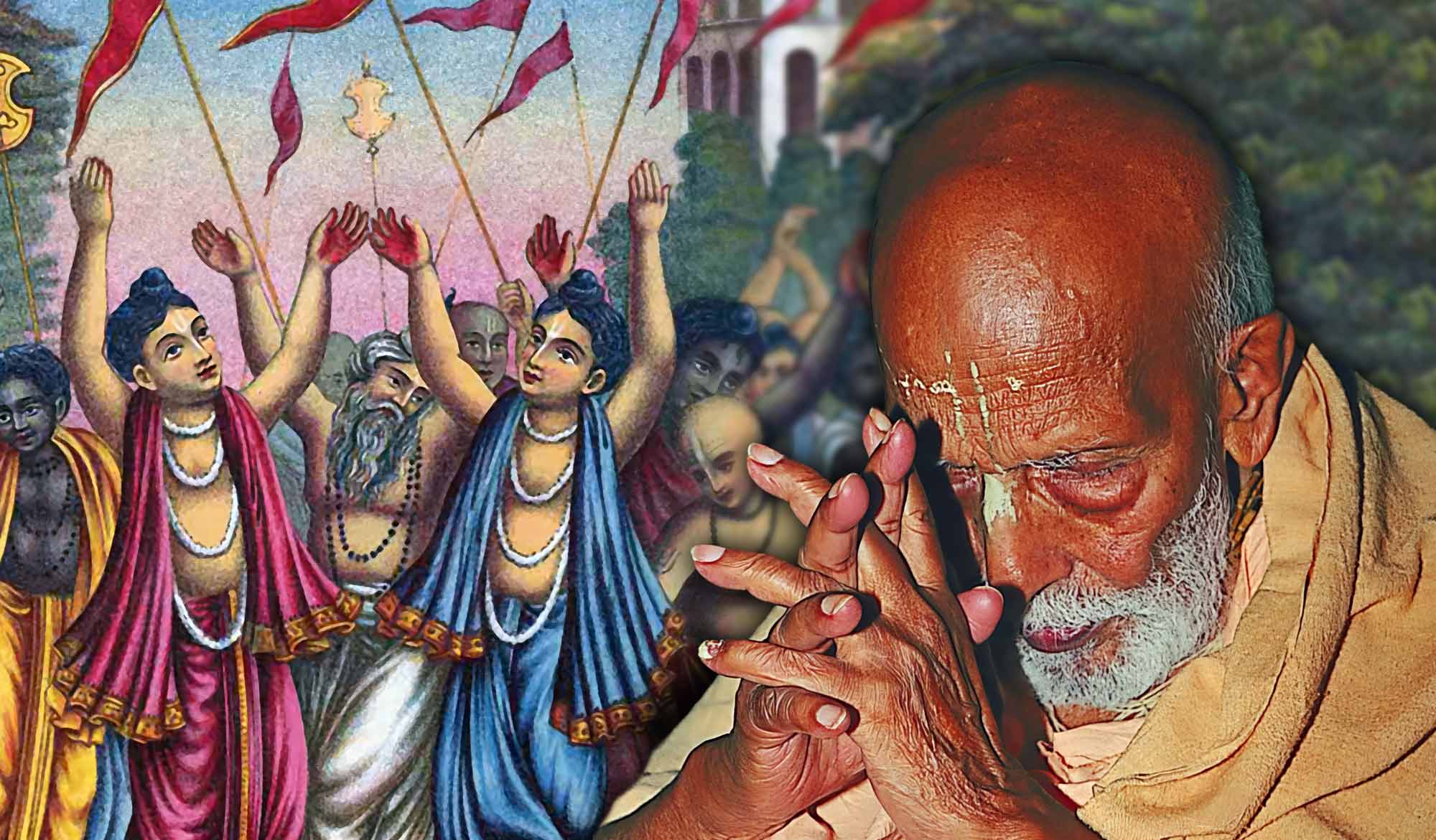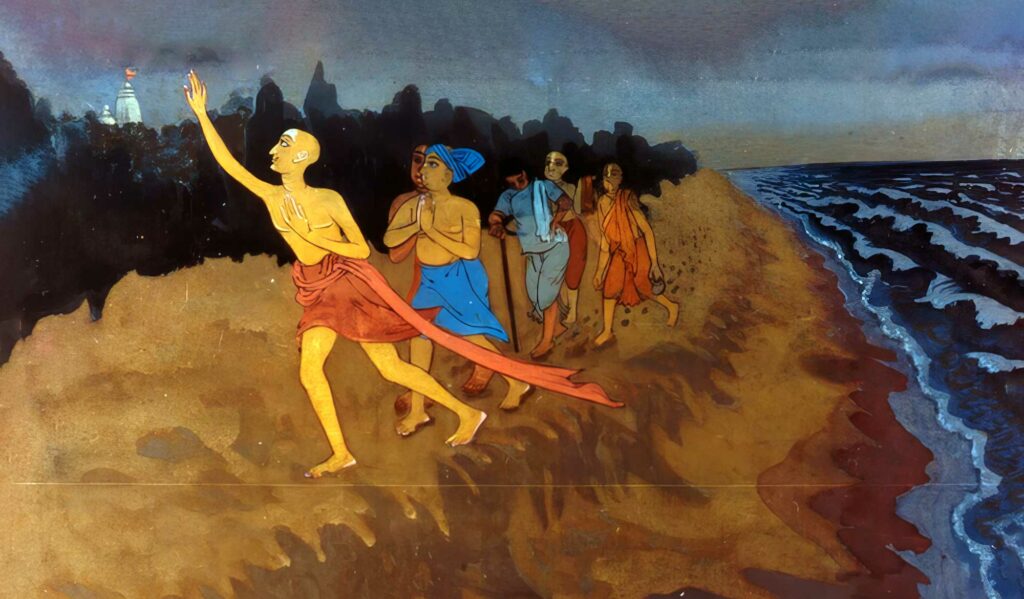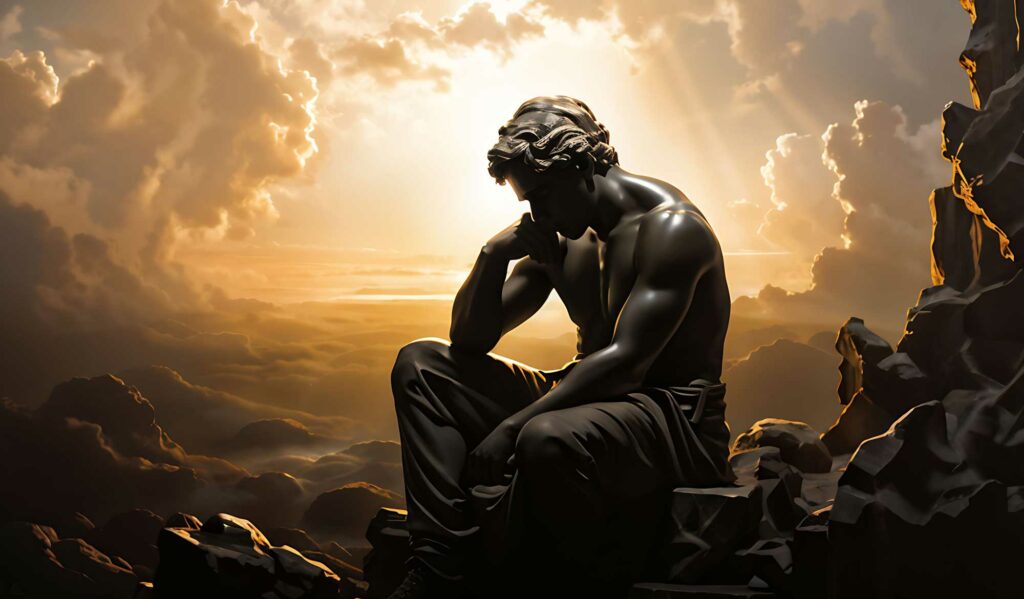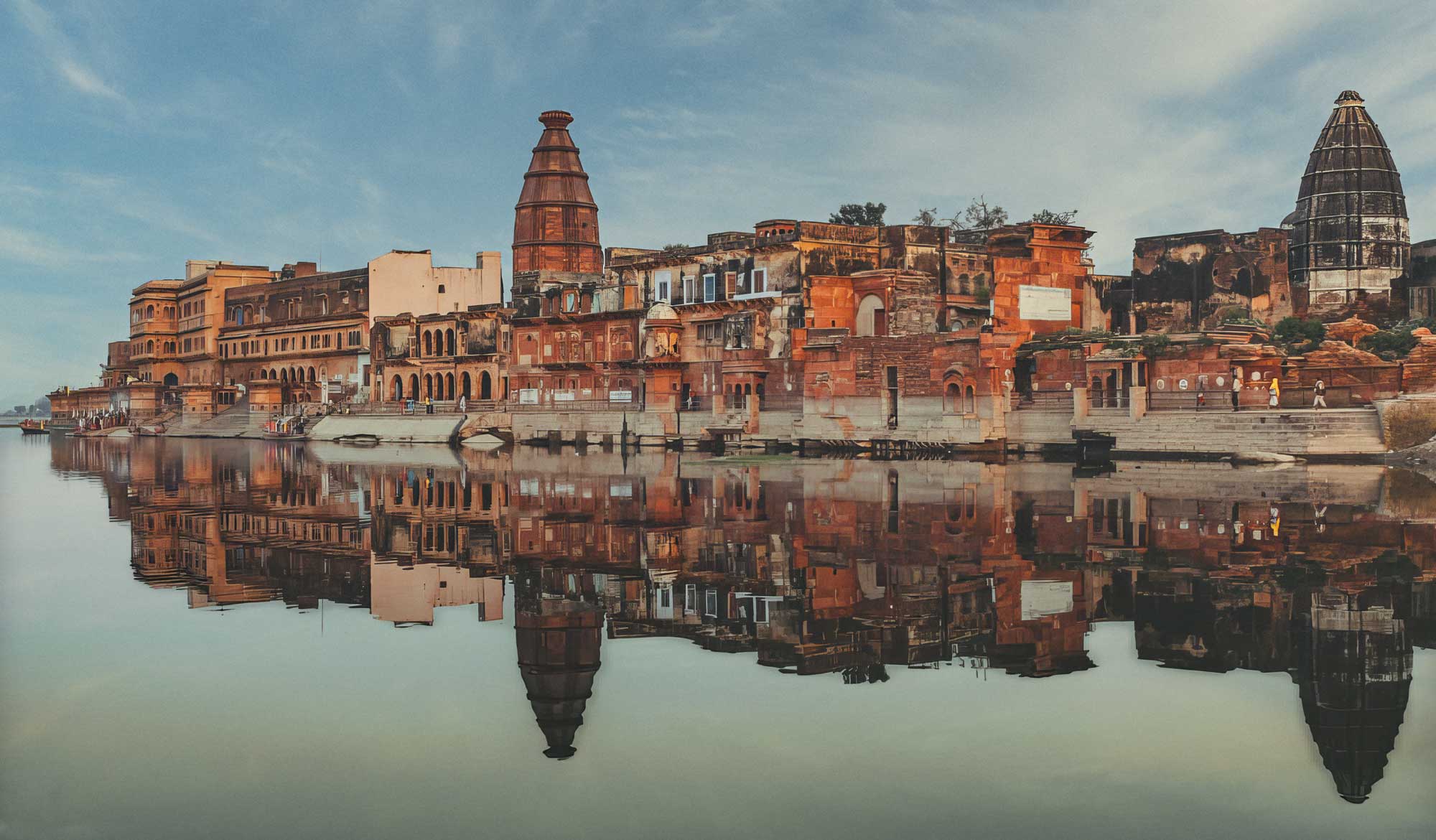Overview
This Bengali poem, ‘Svasti No Gaura-vidhur Dadhātu,’ (May the Moon-like Gaura Bestow Auspiciousness) written by Śrīla Bhakti Pramoda Purī Gosvāmī, was first published in 1965 in Caitanya Vāṇī magazine, Vol.5, Issue 1. In this composition, Śrīla Purī Mahārāja gives advice to the fallen jīvas to sincerely accept Mahāprabhu's gift of the Holy Name. This poem was translated into English by Sanātana Dāsa and Parameśvarī Devī Dāsī.
(1)
golokera hari, bhakta-rūpa dhari’
avatari māyāpure
jīva-duḥkha here, adhairya-antare
bhāsichena aṅkhi-nīre
Śrī Hari of Goloka has accepted the form of a devotee and descended in Māyāpura. Seeing the sufferings of the jīvas, He became impatient in His heart and was inundated by the tears pouring from His eyes.
(2)
jīvere sambhāṣi, balena gaura-śaśī
hari hari bal tora
nāmera ābhāse, saba duḥkha nāṣe
viśvāsa ha’yo na hārā
Addressing the jīvas, the moon-like Gaura says, “All of you chant ‘Hari Hari!’ Even by a semblance of the Holy Name (nāmābhāsa), all your sorrows will be vanquished. Do not lose faith in this.”
(3)
nāmera prema haya, ihā suniścaya
laha nāma śraddhā kari’
acire bujhibe, nāmera prabhāve
sarva-śaktimān hari
Through the Name one attains prema – this is certain. Take the Name with faith. By the influence of the Holy Name, one will soon understand that Hari is all-powerful.
(4)
pūrva-karma-phale, sukha-duḥkha mile
duṣi o nā bhagavāne
nija karma-doṣe, baddha māyā-pāśe
cinta tāhā sāvadhāne
According to the results of one’s previous activities, happiness and distress appear together. Please do not blame Bhagavān for this. Due to the faults of one’s own deeds, one is bound by the noose of māyā. One should carefully consider this.
(5)
guṇamayī māyā, ati duratyayā
jñāna-karma-yoga-pathe
śrī-hari caraṇe, prapatti vihane
keha nāre uddhārite
Māyā, who represents the modes of material nature, is very difficult to overcome by the paths of jñāna, karma and yoga. Without surrendering at the feet of Śrī Hari, nobody can be delivered from her.
(6)
ha’ye buddhi-hārā, pāgalera pārā
chūṭile ki duḥkha yābe
śānti śānti kare, śata cītakāre
bala kibā phala pābe
Will one’s distress go away by becoming devoid of intelligence and running here and there like a mad man? What result will you achieve by crying out, śānti, śānti (‘Peace! Peace!’)?
(7)
ohe jīva bhrātā, śuna bhāla kathā
bujhitechi vyātha tora
guru-pādāśraye, kṛṣṇa-nāma laye
ghucā-o vipada ghora
O brother jīva, I can understand your pain, so hear this good advice – take shelter of the feet of Śrī Guru, chant Kṛṣṇa’s Name, and be rid of these terrible dangers.
(8)
sarva-śakti-nāme, kariyā arpaṇe
kahichena gorā-maṇi
dubāhu tuliyā, premete mātiyā
kara uccha hari-dhvani
All potency is within the Holy Name, and bestowing it, the jewel-like Gaura says, “Lift up your arms, and being immersed in prema, loudly cry out, ‘Hari!’
(9)
mrdaṅga mandirā, laye mātoyārā
hao sabe nāma gāne
kalira daurddaṇḍa, pratāpa pracaṇḍa
kṣaṇe habe avasāne
By becoming absorbed in the rhythm of the mṛdaṅgas and karatālas, if everyone engages in singing the Holy Name, then the terrible devastating power of Kali will be eradicated within a short time.
(10)
dharma-glāni yata, haiyeche udbhuta
kalira prabhāve bhave
nāma-kṛpā-labe, saba dūre yābe
avaśya maṅgala habe
All sorts of degradation of religion has manifested due to the influence of Kali in this world. If one accepts the mercy of the Holy Name, all obstacles will be removed, and certainly one will attain auspiciousness.
(11)
‘nīti’ ‘śikṣā’ ādi, dharma hate yadi
pṛthak karaha dhārya
‘sunīti’ ‘suśikṣā’, haibe upekṣā
sṛṣṭi-nāśa anivārya
If you decide to separate conduct (nīti), teachings (śikṣā) etc, from religion, then true conduct (su-nīti) and true teachings (su-śikṣā) will be neglected and the destruction of this creation will be inevitable.
(12)
āhāra vihāra, varṇāśramācāra
yāhā kichu tumi kara
śrī-kṛṣṇa-uddeśe, sādha’ sa-viśeṣe
śrī-mukha-vacana dhara
Eating, playing, engaging in the activities of varṇāśrama – whatever you do, perform them specifically for Śrī Kṛṣṇa. and accept the statements that come from His divine lips.
(13)
svatantra jīvana, duḥkhamaya jāna
jīva – kṛṣṇa-paratantra
kṛṣṇa-kṛpā vinā, kichu se pāre nā
yantrī-haste yena yantra
Please know that independent life is full of misery. The jīva is under the supreme control of Kṛṣṇa. Without the mercy of Kṛṣṇa, the jīva cannot do anything, as if he is a machine in the hands of an operator.
(14)
chaḍa ahaṅkāra, nāstikatā chāra
kara kṛṣṇe ātmārpaṇa
koṭi guṇa vṛddhi, habe bala buddhi
sarva-siddhi saṁghaṭana
Abandon pride, reject atheism, surrender yourself to Kṛṣṇa. One’s strength and intelligence will increase a million-fold, and all perfection will be achieved.
(15)
yatra yogeśvara, kṛṣṇa sarveśvara
yatra pārtha dhanurdhara
tatra ‘śrī’ ‘vijaya’, dhruvā nīti haya
‘bhūti’ tathā sthiratara
Where there is Yogeśvara Kṛṣna, the Controller of all, and where there is Pārtha, the wielder of the bow, there is opulence, victory, extraordinary power, and morality.
* Translator’s Note: See Bhagavad-gītā 18.
(16)
aśānta jagate, śānti saṁsthāpite
kāhāra śakati bala
kṛṣṇa-tuṣṭi vinā, aśānti yabe nā
(kṛṣṇa) nāma kara susambala
Tell me, who has the potency to establish peace in this turbulent world? Without pleasing Kṛṣṇa, disturbances will not go away, so take proper shelter of kṛṣṇa-nāma.
(17)
bala kṛṣṇa nāma, bhaja kṛṣṇa-dhāma
kara kṛṣṇa-śikṣā sāra
bindu-mātra sneha, kara gaura keha
bhulo nāre ihā āra
Chant kṛṣṇa-nāma, worship Kṛṣṇa’s abode, and make the teachings of Kṛṣṇa essential. One who has but a little drop of affection towards Gaura, will never forget this ever again.
Related Articles, Songs and Prayers
- Śrī Gaura-hari Kusuma Stavāṣṭākam by Śrīla Bhakti Rakṣaka Śrīdhara Deva Gosvāmī
- Śrī Kusumañjalī (An Offering of Flowers) by Śrīla Bhakti Rakṣaka Śrīdhara Deva Gosvāmī
- Śrī Nāma Māhātmya (The Glories of the Holy Name) by Śrīla Bhakti Rakṣaka Śrīdhara Deva Gosvāmī
- Śrī Nityānanda Dvādaśakam by Śrīla Bhakti Rakṣaka Śrīdhara Deva Gosvāmī
- Śrīmad Bhaktivinoda Viraha Daśakam by Śrīla Bhakti Rakṣaka Śrīdhara Deva Gosvāmī
- Śrī Śrī Gaurasundara Āvirbhava Vāsare by Śrīla Bhakti Rakṣaka Śrīdhara Deva Gosvāmī
- ‘The Best of Thieves’ – An Illumination by Śrīla Bhakti Rakṣaka Śrīdhara Deva Gosvāmī
- Mā Muñca Pañca-daśakam (Fifteen Verses Praying Not to be Abandoned) by Śrīla Śrīdhara Deva Gosvāmī Mahārāja
- Śrīla Sarasvatī Gosvāmyāṣṭakam by Śrīla Śrīdhara Deva Gosvāmī Mahārāja
- Vṛndāvane Bhajana (Worship in Vṛndāvana) by Śrīla A.C. Bhaktivedānta Swami Prabhupāda
- Vaiśiṣṭyāṣṭaka (Eight Stanzas of Significance) by Śrīla A.C. Bhaktivedānta Swami Prabhupāda
- Svasti No Gaura-vidhur Dadhātu (May the Moon-like Gaura Bestow Auspiciousness) by Śrīla B.P. Purī Mahārāja
- A Prayer Composed on the Occasion of the Disappearance of Śrīla Gadādhara Paṇḍita by Śrīla Bhakti Pramoda Purī Gosvāmī
- Śrī Śrī Gaura Gopāla Praśasti (In Praise of Śrī Śrī Gaura Gopāla) by Śrīla Bhakti Pramoda Purī Gosvāmī
- Viraha-Gītikā (A Song of Separation) by Śrīla Bhakti Pramoda Purī Mahārāja
- Jaya Rādhā-Mādhava by Śrīla Bhakti Gaurava Narasiṅgha Mahārāja
- Purport to Śrīla Prabhupāda-līlā Smaraṇa-Maṅgala Stotram by Śrīla Bhakti Gaurava Narasiṅgha Mahārāja
- Purī Mahārāja’s Praṇāma Mantra by Śrīla Bhakti Gaurava Narasiṅgha Mahārāja
- Śrī Guru-viraha Ṣaṭakam – Six Verses in Separation from Śrī Guru by Swami B.V. Giri
- Śrī Guru Praṇāma Anuvākya – An Explanation of Śrīla Guru Mahārāja’s Praṇāma Mantra by Swami B.V. Giri
Further Reading from the Bhaktivinoda Institute
- Gītā-mālā (A Garland of Songs) by Śrīla Bhaktivinoda Ṭhākura (Songbook)
- Kalyāṇa Kalpataru (‘The auspicious Desire Tree’) by Śrīla Bhaktivinoda Ṭhākura (Songbook)
- Śaraṇāgati (Surrendered to the Lord’s Shelter) by Śrīla Bhaktivinoda Ṭhākura (Songbook)
- Gītāvalī (A Collection of Songs) by Śrīla Bhaktivinoda Ṭhākura (Songbook)
- Bāula Saṅgīta by Śrīla Bhaktivinoda Ṭhākura (Songbook)
- Sevā Lālasā (Hankering for Service) by Śrīla Bhaktivinoda Ṭhākura (Songbook)
- Śrī Godruma-candra Bhajanopadeśa by Śrīla Bhaktivinoda Ṭhākura
- Śrī Kṛṣṇacandra by Śrīla Bhaktivinoda Ṭhākura
- Śrī Gīta Govinda Introduction by Śrīla Bhaktivinoda Ṭhākura
- Poems by Śrīla Bhaktivinoda Ṭhākura
Pilgrimage with Swami Narasiṅgha – Part 7: Keśī Ghāṭa
Continuing with our pilgrimage series, this week Śrīla Narasiṅgha Mahārāja takes us to Keśī Ghāṭā where he tells us about Madhumaṅgala’s meeting with the Keśī demon, what Keśī represents, and how Śrīla Prabhupāda almost acquired Keśī Ghāṭa. Mahārāja also narrates his own experience. This article has been adapted from a number of talks and articles by Narasiṅgha Mahārāja.
Prema Dhāma Deva Stotram with the Narasiṅgha Sevaka Commentary – Verses 61-65
In verses 61 to 65 of 'Prema Dhāma Deva Stotram', Śrīla Śrīdhara Mahārāja narrates the pastime of Śrī Caitanya at Caṭaka Parvata In Purī and explains how the scriptures produced by Brahmā and Śiva are ultimately searching for the personality of Mahāprabhu who is merciful too all jīvas, no matter what their social position.
Prabhupāda Śrīla Sarasvatī Ṭhākura’s Visit to Ayodhyā
With the forthcoming observance of Śrī Rāma Navamī, we present 'Prabhupāda Śrīla Sarasvatī Ṭhākura’s Visit to Ayodhyā' written by Śrīla Bhaktisiddhānta Sarasvatī Ṭhākura Prabhupāda from The Gaudīyā magazine, Vol 3. Issue 21/ In December 1924, after visiting Benares and Prāyāga, Sarasvatī Ṭhākura visited the birth-site of Śrī Rāmācandra in Ayodhyā.
Śaraṇāgati – The Only Path to Auspiciousness
In this article, 'Śaraṇāgati - The Only Path to Auspiciousness', Dhīra Lalitā Dāsī analyses the process of śaraṇāgati (surrender) beginning with śraddhā (faith). She also discusses the role of śāstra and the Vaiṣṇava in connection with surrender.
Pilgrimage with Swami Narasiṅgha – Part 7: Keśī Ghāṭa
Continuing with our pilgrimage series, this week Śrīla Narasiṅgha Mahārāja takes us to Keśī Ghāṭā where he tells us about Madhumaṅgala’s meeting with the Keśī demon, what Keśī represents, and how Śrīla Prabhupāda almost acquired Keśī Ghāṭa. Mahārāja also narrates his own experience. This article has been adapted from a number of talks and articles by Narasiṅgha Mahārāja.
Prema Dhāma Deva Stotram with the Narasiṅgha Sevaka Commentary – Verses 61-65
In verses 61 to 65 of 'Prema Dhāma Deva Stotram', Śrīla Śrīdhara Mahārāja narrates the pastime of Śrī Caitanya at Caṭaka Parvata In Purī and explains how the scriptures produced by Brahmā and Śiva are ultimately searching for the personality of Mahāprabhu who is merciful too all jīvas, no matter what their social position.
Prabhupāda Śrīla Sarasvatī Ṭhākura’s Visit to Ayodhyā
With the forthcoming observance of Śrī Rāma Navamī, we present 'Prabhupāda Śrīla Sarasvatī Ṭhākura’s Visit to Ayodhyā' written by Śrīla Bhaktisiddhānta Sarasvatī Ṭhākura Prabhupāda from The Gaudīyā magazine, Vol 3. Issue 21/ In December 1924, after visiting Benares and Prāyāga, Sarasvatī Ṭhākura visited the birth-site of Śrī Rāmācandra in Ayodhyā.
Śaraṇāgati – The Only Path to Auspiciousness
In this article, 'Śaraṇāgati - The Only Path to Auspiciousness', Dhīra Lalitā Dāsī analyses the process of śaraṇāgati (surrender) beginning with śraddhā (faith). She also discusses the role of śāstra and the Vaiṣṇava in connection with surrender.








